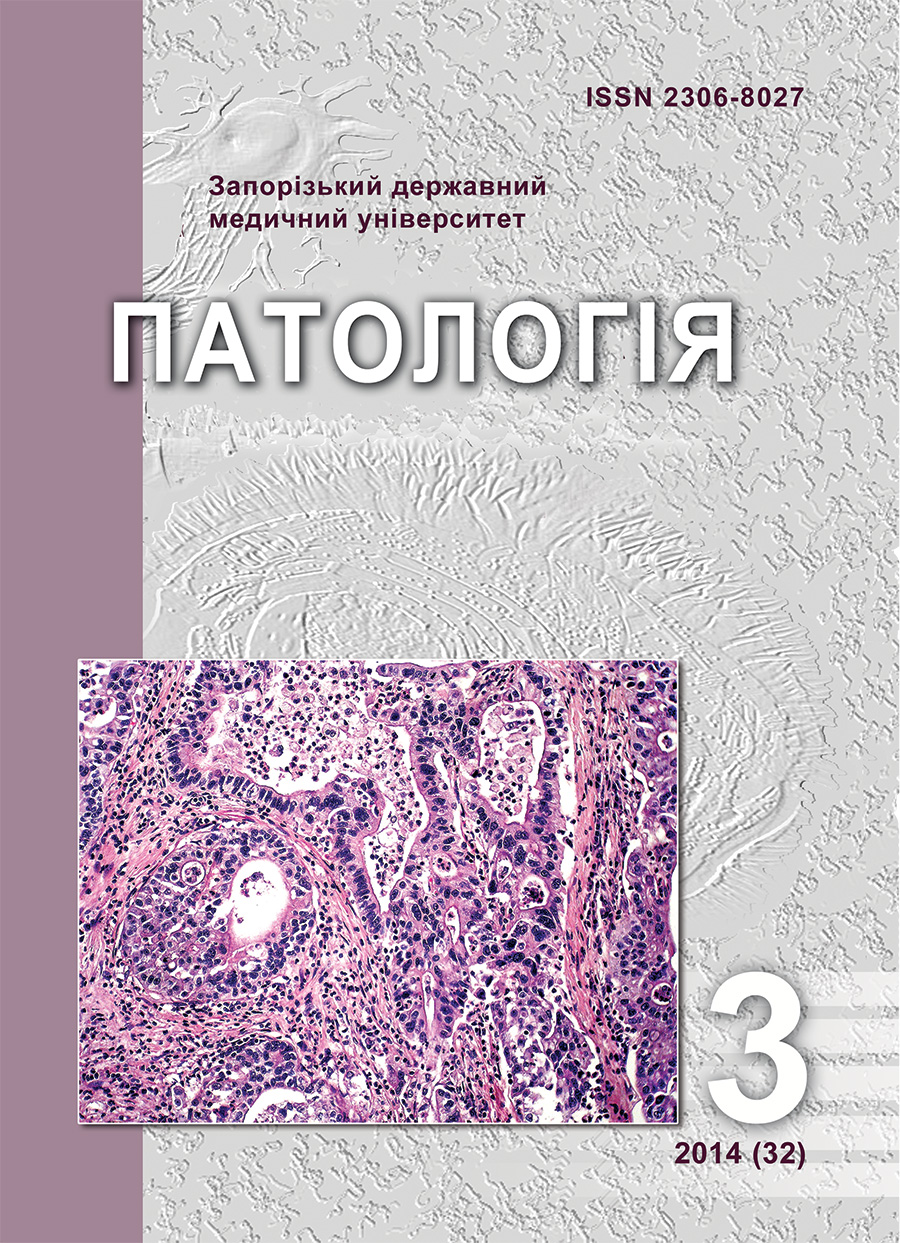EFFECTIVENESS OF RATIONAL PSYCHOTHERAPY IN COMPLEX TREATMENT OF PATIENTS IN EARLY REPARATIVE PERIOD OF THE BRAIN ISCHEMIC HEMISPHERIC STROKE
DOI:
https://doi.org/10.14739/2310-1237.2014.3.36941Keywords:
Stroke, Rehabilitation, Depressive Disorder, PsychotherapyAbstract
Aim. The results of the research of 62 patients in early reparative period of the brain ischemic hemispheric stroke against the background of therapy are written in the article.
Methods and results. It was detected that administration of the rational psychotherapy in the complex treatment of patients in early recovery period of the brain ischemic hemispheric stroke provides decrease of the depression level on Beck inventory (Δ%-33,3, p<0,01) and reactive anxiety level onSpilberger-Hanin scale (Δ%-21,9, p<0,01).
Conclusion.It was shown that reduction of depressive-anxious disturbances during administering of rational psychotherapy in the complex treatment of patients in early recovery period of the brain ischemic hemispheric stroke is accompanied by essential decrease of neurological deficiency on NIH scale in combination with more evident increasing of functional independence degree according to Barthel index and quality of life onEQ-5D (EuroQoL) questionnaire.
References
Capaldi, V., &Wynn, I (2010). Emerging strategies in the treatment of post-stroke depression and psychiatric distress in patients. Psychol Res BehavManag, 3, 109–118.doi: 10.2147/PRBM.S10035.
Willey, J., Disla, N., Moon, Y., Paik, M., Sacco, R., Boden-Albala, B., Wright, C. (2010). EarlyDepressedMoodAfterStrokePredicts Long-Term Disability: TheNorthernManhattanStrokeStudy (NOMASS).Stroke,41, 1896–1900.doi: 10.1161/STROKEAHA.110.583997.
Hackett, M. L., Yapa, C., ParagV., et al. (2005). Frequency depression after stroke: a systematical review of observational studies. Stroke, 36, 1330–1340.doi: 10.1161/01.STR.0000165928.19135.35.
Gaete, J.M., &Bogousslavsky, J. (2008). Post-stroke depression. Exp Rev Neurother, 8, 75–92.
Gilhus, N. E., Barnes, M. R.,Brainin,M.(2011). European Handbook of Neurological Management: Volume 1, 2nd Edition.Blackwell Publishing Ltd.
Hackett, M. L., Anderson, C. S., House,A. O., &Halteh, C. (2009). Interventions for Preventing Depression After Stroke. Stroke, 40, 485-486.doi: 10.1161/STROKEAHA.109.547042.
Kanner, A.M.(2005).Depression in neurological disorders.Lundbec Inst.
Mukherjee, D.,&Patil, C.G. (2011). Epidemiology and the global burden of stroke. World Neurosurg.,76(6), 85–90.doi: 10.1016/j.wneu.2011.07.023
Williams, L.S., ShomaGhose, S., &Swindle, R.W. (2004). Depression and other mental health diagnoses increase mortality risk after ischemic stroke. AmJPsychiatry., 161, 1090–1095. doi: 10.1176/appi.ajp.161.6.1090.
Downloads
How to Cite
Issue
Section
License
Authors who publish with this journal agree to the following terms:
Authors retain copyright and grant the journal right of first publication with the work simultaneously licensed under a Creative Commons Attribution License that allows others to share the work with an acknowledgement of the work's authorship and initial publication in this journal.

Authors are able to enter into separate, additional contractual arrangements for the non-exclusive distribution of the journal's published version of the work (e.g., post it to an institutional repository or publish it in a book), with an acknowledgement of its initial publication in this journal.
Authors are permitted and encouraged to post their work online (e.g., in institutional repositories or on their website) prior to and during the submission process, as it can lead to productive exchanges, as well as earlier and greater citation of published work (SeeThe Effect of Open Access).

